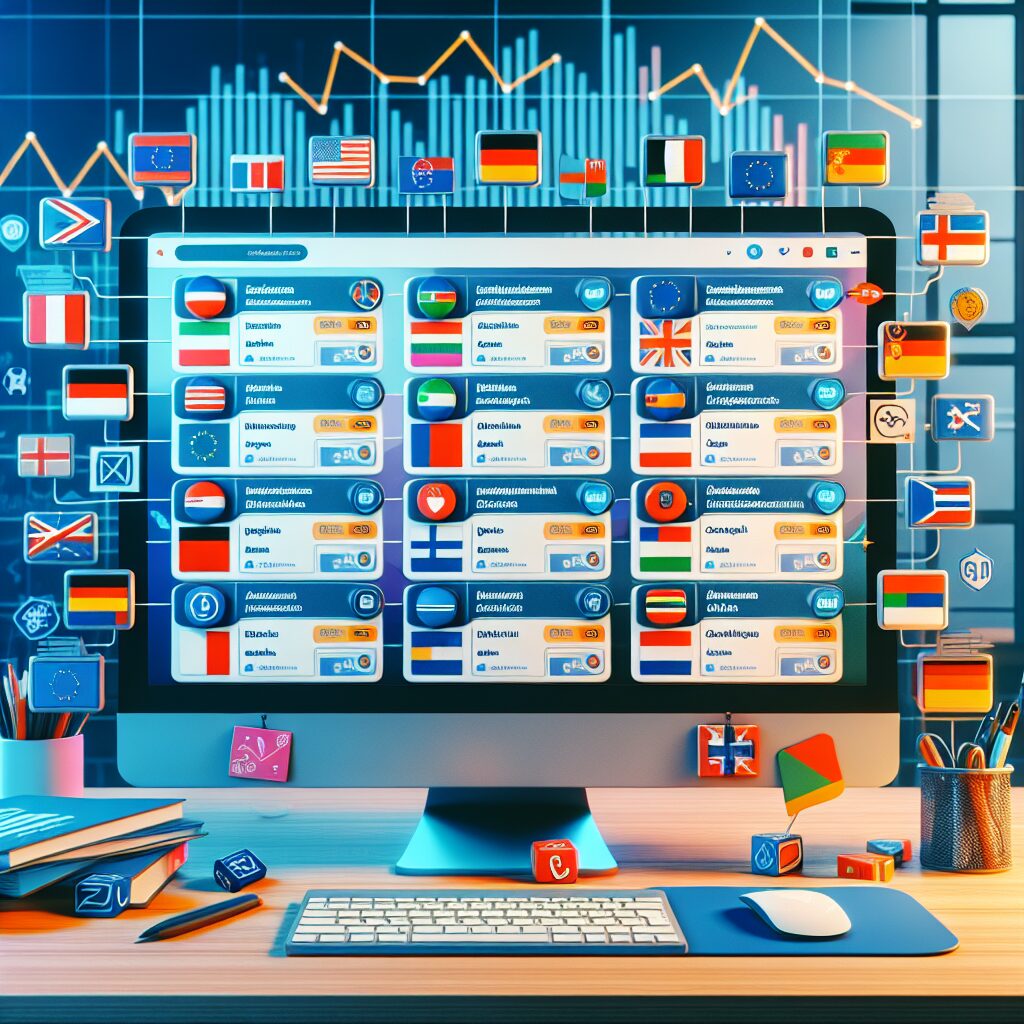About eldris
At Eldris, we automate SEO, multilingual site expansion, and EU compliance for brands scaling across Europe. Our AI-powered platform handles everything from content publishing to regulatory docs—so you don’t have to.
In This Article
- Implement AI tools that streamline keyword, content, and technical audits.
- Combine human creativity with AI insights for maximum content appeal.
- Invest in training to bridge the AI and SEO knowledge gap.
- Continuously monitor ROI using integrated AI performance dashboards.
- Prepare for personalisation-driven search experiences with adaptive SEO strategies.
Understanding the Role of AI in Modern SEO
From Algorithms to Automation
The landscape of search engine optimisation has experienced seismic shifts over the past decade, with AI and SEO Integration taking centre stage. AI—through machine learning, natural language processing, and predictive analytics—is now central to how search engines index and rank content. Rather than relying purely on traditional metrics like keyword frequency, modern algorithms interpret user intent, assess topical relevance, and evaluate on-page user engagement signals.
Automation, powered by AI, plays a strategic role in scaling optimisation tasks. Whether it involves audience analysis, backlink profiling, or meta-tag generation, integrating AI-driven tools streamlines the entire SEO process. By augmenting keyword strategies and decoding algorithm changes, AI empowers businesses to remain agile and resilient in competitive search environments. For further insight into the evolution of optimisation strategies, see Learn more about AI and SEO Integration.

AI Tools That Are Revolutionizing SEO
Top Performers in AI-Driven SEO Solutions
Several cutting-edge platforms exemplify the potential of AI and SEO Integration. Tools such as Clearscope, Surfer SEO, and MarketMuse offer real-time content scoring and keyword clustering through artificial intelligence. These platforms analyse search intent across millions of queries and help users match their content against ranking competitors, ensuring SEO alignment and semantic coverage.
Frase.io and Jasper (formerly Jarvis) utilise natural language processing to help generate content outlines and full-page drafts optimised for search performance. They can identify trending topics, suggest queries to include, and even recommend tone shifts for target demographics. Additionally, SEMrush and Ahrefs have incorporated AI-driven audits that highlight structural issues likely to impact crawlability and ranking.
These advanced solutions reduce the latency between strategy formulation and deployment, which is critical in fast-moving digital spaces. Their learning systems continuously evolve, catching patterns that human analysts may overlook, thereby delivering a competitive edge through data-driven decisions. Explore a curated vendor list at Discover how AI is shaping the future of SEO.
“AI doesn’t just power search engines—it revolutionises how we optimise for them. Embrace it, or fall behind.”
Why AI-Driven SEO Matters for Business Growth
The advantages of AI and SEO Integration extend well beyond efficiency. AI aligns SEO strategies with user behaviours, uncovering patterns that traditional analytics may miss. By going beyond surface-level metrics and integrating multifaceted user intent, businesses can craft more tailored and impactful content experiences.
This granularity allows firms to increase organic reach while lowering bounce rates. AI aids in refining content strategy and enhances customer journey analysis, which in turn boosts on-page conversions. A/B testing platforms now employ AI for real-time behavioural pattern identification, allowing marketers to adapt dynamically without extensive manual input.
Ultimately, AI equips businesses with foresight, offering predictive modelling that supports campaign planning and resource allocation. Such strategic insights are indispensable for sustained digital growth. To understand how AI also strengthens customer relationship management frameworks, see Read a related article.
Keyword Research at Scale with Machine Learning
Traditional keyword research methods can be cumbersome, and they lack the agility necessary for real-time trend adaptation. However, with the enhanced capabilities of machine learning—a core component of AI and SEO Integration—marketers can uncover long-tail keywords, user questions, and buyer intent signals that were previously invisible.
Tools like BrightEdge and Google’s BERT-based suggestions offer predictive keyword modelling. They anticipate emerging queries and seasonality shifts, allowing businesses to stay ahead of the curve. Moreover, SEO strategists can now input seed keywords and receive data clusters based not merely on volume, but on relevance, intent, and conversion potential.
Contextual linguistic analysis powered by AI vastly improves the match between content and audience. Semantic search ensures the alignment of articles with not only typed queries but also voice search, which has been on the rise. Thus, AI doesn’t just scale keyword research—it renders it smarter, ensuring content reaches the right users at the right time.
Content Optimization Through AI Suggestions
Creating high-quality, optimised content has traditionally been labour-intensive, requiring both specialised expertise and constant vigilance to keep up with algorithm updates. AI and SEO Integration alleviates this pain point with intelligent recommendations that guide content authors from ideation to publication.
AI tools like Grammarly and Hemingway help maintain clarity and reading-level appropriateness, which indirectly impact SEO via engagement metrics such as time-on-page and scroll depth. Platforms like Copy.ai and Writesonic take it a step further by providing SEO-friendly content briefs, H1/H2 structuring tips, and even metadata suggestions.
Beyond pure content generation, AI also personalises content delivery. Based on user behavioural signals, it can adjust content emphasis or recommend internal linking pathways. This level of optimisation substantially improves both SEO score and user engagement, creating a virtuous cycle of improved domain authority and traffic yield.
Technical SEO Auditing with AI Automation
The technical backbone of any SEO strategy revolves around site architecture, page speed, mobile responsiveness, and crawlability. AI and SEO Integration brings forth a new generation of auditing tools that autonomously identify, prioritise, and recommend actionable corrections for technical deficiencies.
Platforms like Botify and Sitebulb use AI to simulate how search engines experience websites, identifying JavaScript rendering issues, broken links, and URL anomalies with impressive precision. Machine learning algorithms continuously refine these assessments based on updated algorithm changes from Google and Bing.
Even schema markup—once considered niche—now benefits from AI-enhanced suggestion engines that outline where and how to deploy structured data for maximum benefit. Through real-time alerts and fix-prioritisation engines, AI ensures technical SEO is maintained seamlessly without relying on periodic manual checks. This precision-driven approach enhances indexing efficiency and, ultimately, site authority.
Case Studies: Businesses Scaling with AI SEO
Several high-growth organisations have successfully adopted AI and SEO Integration as a cornerstone in their digital strategies. For instance, a leading UK-based travel agency implemented MarketMuse to reinvent their content structure. Within six months, organic traffic increased by 43%, and bounce rate decreased by 18%.
In another case, a SaaS firm employed Surfer SEO and Frase.io concurrently to optimise their long-form blog strategy. They witnessed a 23% uplift in lead conversions from organic search, primarily driven by improved ranking on long-tail commercial intent queries.
A logistics provider leveraged BrightEdge to adjust their SEO efforts in real time during COVID-related disruptions. By predicting spikes in transport queries, they maintained visibility ahead of the competition, resulting in a 60% increase in page-one impressions over a critical quarter.
These case studies underscore that AI doesn’t merely support SEO—it amplifies its effectiveness exponentially when strategically implemented.
Overcoming Challenges in AI SEO Integration
Despite its transformative potential, AI and SEO Integration is not without hurdles. The most prevalent challenge lies in data integrity. AI is only as good as the quality of data it processes. Poorly tagged pages, duplicate content, and inconsistent backlinks can skew AI-generated insights, leading to ineffective strategies.
Additionally, the learning curve associated with advanced AI tools poses a barrier for smaller businesses or non-technical marketers. While the UI of most platforms is quite intuitive, extracting valuable insights still requires foundational SEO knowledge. Training and onboarding become necessary line items in implementation planning.
Moreover, over-reliance on AI can dilute human creativity. Search engine algorithms still value unique perspectives and emotionally resonant content. Successful strategies operationalise AI to handle data-intensive tasks, freeing up human experts to elevate content quality and brand messaging.
Measuring Success and ROI from AI SEO
Determining the success of AI-enhanced strategies involves both traditional SEO KPIs and newer performance metrics. Beyond measuring organic traffic and keyword rankings, businesses should track content efficiency scores, AI-suggested content vs. control-group performance, and time-to-optimisation improvements.
Many AI platforms include dashboards that provide content velocity metrics, discoverability indexes, and user engagement deltas. Conversion rate improvements linked to AI-driven changes should also be monitored closely. For instance, a reduced time-to-first-index may reflect improved crawl optimisation driven via AI-based recommendation engines.
Ultimately, ROI hinges on accurate attribution modelling. With AI tools integrating directly with CRMs and analytics platforms, end-to-end attribution—from content conception to conversion—becomes quantifiable. This comprehensive visibility justifies investment and promotes long-term growth.
Future Trends: SEO in the Age of Generative AI
Generative AI such as ChatGPT and Google’s Gemini is set to radically reshape the field of SEO. Content generation at scale will continue to evolve, requiring stricter quality control to prevent homogenisation or factual inaccuracies. Search engines are concurrently refining their capacity to differentiate between AI-generated and human-authored content.
Zero-click searches are also expected to rise, as AI-generated snippets and knowledge panels offer quick answers. Hence, the optimisation emphasis will shift towards featured snippets, schema markup, and branded search terms. Integration with voice assistants like Alexa or Siri may further pressure businesses to optimise for spoken queries.
Personalisation driven by AI will redefine user journeys. SEO strategies must adapt to cater to hyper-specific user personas and contexts. AI will not just optimise for engines, but for nuanced, evolving human behaviours—a challenging but rewarding frontier.
Conclusion and Strategic Takeaways
The synergy between AI and SEO Integration has evolved from a technical augmentation to a strategic imperative. When deployed thoughtfully, AI does not replace human expertise—it magnifies it. From keyword research and content creation to technical audits and ROI measurement, artificial intelligence accelerates and enhances every stage of the SEO lifecycle.
As search algorithms become more intuitive and user-centric, leveraging AI ensures businesses remain proactive, not reactive. The path forward demands balanced integration—human creativity steered by data-driven intelligence. Businesses that embrace this dynamic duo position themselves for sustained digital relevance and market leadership.
Great guide on ai-and-seo-achieving-synergy-for-business-growth – Community Feedback
How can AI be used for SEO?
AI streamlines SEO by automating tasks such as keyword research, technical optimization, and content optimization, increasing efficiency and accuracy.
What is the best AI tool to optimize SEO?
Top AI SEO tools like Alli AI offer automated technical and on-page optimization, site audits, and keyword analysis to boost performance at scale.
How do AI and SEO work together for business growth?
Together, AI and SEO create efficiencies, enable data-driven insights, and help deliver more personalized user experiences, leading to measurable business growth.








